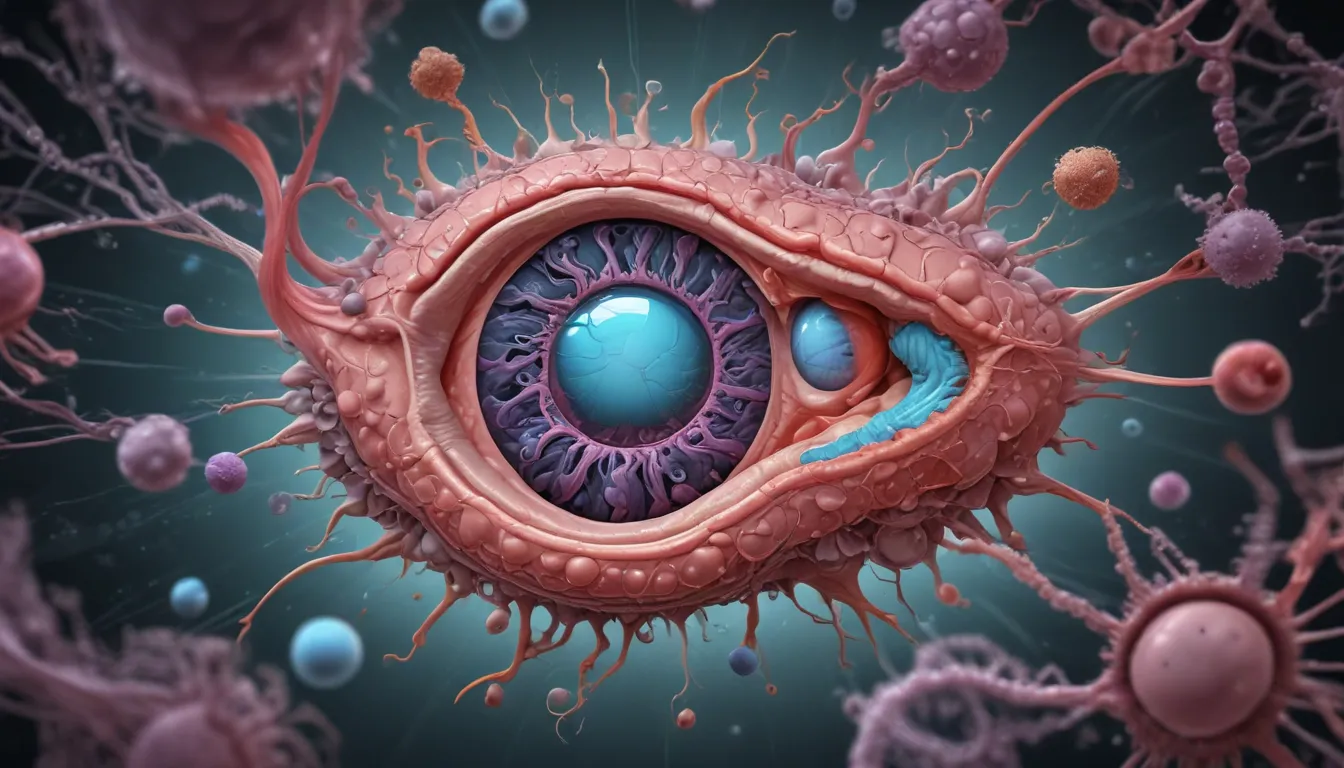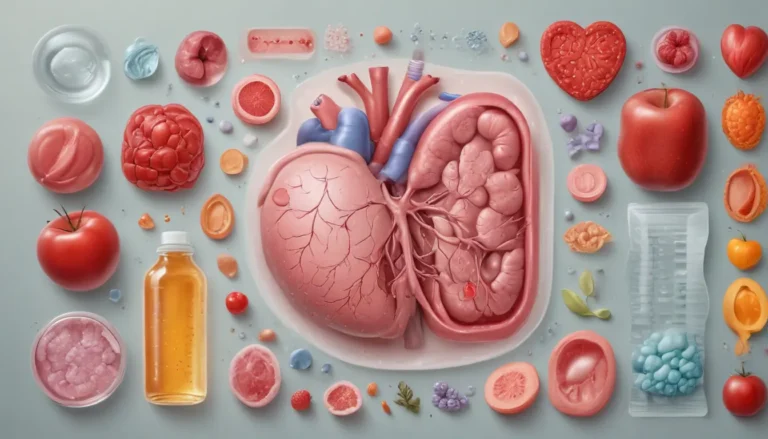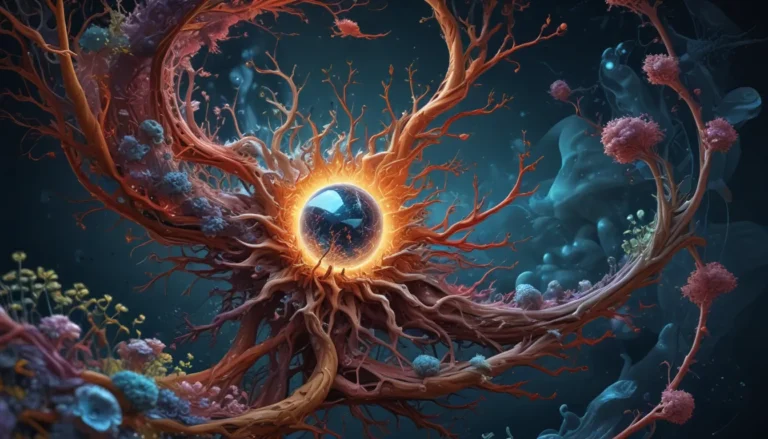A Note About Images: The images used in our articles are for illustration purposes only and may not exactly match the content. They are meant to engage readers, but the text should be relied upon for accurate information.
Hormones are the tiny messengers that orchestrate the symphony of signals within our bodies, regulating essential physiological processes. Controlled by the endocrine system, these chemical messengers play a vital role in maintaining balance and transmitting signals to different organs and tissues. While the process of hormone secretion may seem straightforward, there are numerous fascinating and enigmatic aspects to explore. In this article, we will delve into the complexities of hormone secretion and unravel 20 intriguing facts that shed light on this intricate phenomenon. From the delicate interplay between hormones and their target cells to the role of various factors in influencing hormone secretion, we will journey through the captivating world of hormones. So, fasten your seatbelts and embark on a fascinating exploration of the mysteries behind these chemical messengers!
Decoding Hormone Secretion: A Closer Look
Understanding the Endocrine System
The endocrine system, comprised of glands that release hormones into the bloodstream, serves as the regulatory hub for hormone secretion in the body. These glands play a crucial role in maintaining homeostasis and orchestrating various physiological processes.
The Role of Hormones as Chemical Messengers
Hormones act as chemical messengers, carrying signals from the endocrine glands to specific target cells or organs where they exert their effects. With more than 50 known hormones in the human body, each serving a unique purpose, the diversity of functions regulated by hormones is truly remarkable.
Pulsatile Release of Hormones
Contrary to continuous release, hormone secretion follows a pulsatile pattern characterized by bursts of release. This pattern helps maintain balance and prevents overstimulation, highlighting the intricate regulatory mechanisms at play.
Factors Influencing Hormone Secretion
Various factors such as stress, sleep, exercise, and nutrition can influence hormone secretion and balance in the body. Understanding these influences is key to optimizing hormonal function and overall well-being.
The Hypothalamus: Master Regulator of Hormones
The hypothalamus, a vital region in the brain, plays a pivotal role in regulating hormone secretion by releasing specific signaling molecules. Its influence on hormone production underscores its significance in maintaining hormonal balance.
Delving Deeper Into Hormone Secrets
Short-Term and Long-Term Effects of Hormones
Hormones can elicit both rapid, short-term responses and long-lasting effects that impact growth, development, and reproduction. This dual nature of hormone action underscores their diverse and crucial roles in the body.
Disruption of Hormone Secretion
Certain diseases and conditions such as diabetes, thyroid dysfunction, and hormonal imbalances can disrupt normal hormone secretion, leading to a myriad of health issues. Recognizing these disruptions is key to addressing underlying health concerns.
Hormonal Regulation of Stress Response
Hormones play a pivotal role in regulating the body’s response to stress, with hormones like cortisol being released to help cope with physical and emotional demands. Understanding this interplay is essential for managing stress effectively.
Feedback Loops in Hormone Regulation
Feedback mechanisms involving the hypothalamus, pituitary gland, and target organs ensure that hormone levels remain within a balanced range. This intricate system of checks and balances highlights the sophistication of hormonal regulation.
Local and Systemic Effects of Hormones
While some hormones exert their effects locally within specific tissues, others have widespread systemic effects throughout the body. This dual mode of action underscores the versatility of hormones in regulating diverse bodily functions.
Hormones: Guardians of Vital Functions
Metabolic Regulation by Hormones
Hormones like insulin, glucagon, and leptin play a pivotal role in regulating processes such as glucose metabolism, energy balance, and fat storage. Their influence on metabolic functions underscores their significance in maintaining overall health.
Hormonal Control of Reproductive System
Essential hormones like estrogen, progesterone, and testosterone are integral in regulating reproductive function, fertility, and sexual development. Understanding their roles is crucial for reproductive health and well-being.
Melatonin and the Sleep-Wake Cycle
The pineal gland secretes the hormone melatonin, which helps regulate the sleep-wake cycle and maintain the body’s internal clock. This hormone plays a crucial role in ensuring optimal sleep patterns and overall well-being.
Mood and Emotional Regulation by Hormones
Hormonal fluctuations can impact mood and emotions, contributing to changes in behavior and mental well-being. Recognizing the role of hormones in emotional regulation is essential for maintaining psychological health.
Gender Variations in Hormone Secretion
Males and females exhibit differences in hormonal profiles, leading to variations in hormone secretion and physiological responses. Understanding these variations is key to addressing gender-specific health concerns.
Unlocking the Power of Hormones for Growth and Balance
Hormones as Growth Factors
Certain hormones like growth hormone and insulin-like growth factors play a crucial role in promoting proper growth and development during childhood and adolescence. Their impact on growth underscores their significance in shaping overall health.
Regulation of Blood Pressure and Fluid Balance
Hormones such as renin, aldosterone, and antidiuretic hormone (ADH) are involved in maintaining blood pressure and fluid balance within the body. Their role in regulating key physiological functions highlights their importance in overall health.
Influence of Hormones on Appetite and Food Cravings
Hormones like leptin and ghrelin regulate appetite, hunger, and satiety, influencing food cravings and eating behaviors. Understanding the hormonal regulation of appetite is key to maintaining a healthy relationship with food.
Impact of Environmental Factors on Hormone Secretion
Exposure to light, temperature changes, and chemical substances can impact hormone secretion, disrupting normal physiological processes. Recognizing the influence of environmental factors is crucial for optimizing hormonal function.
Unveiling the Significance of Hormone Secrets
These 20 enigmatic facts about hormone secretion provide a captivating glimpse into the complex and intricate world of endocrine regulation in our bodies. By unraveling the mysteries of hormone secretion, we gain valuable insights into the mechanisms that govern our health and well-being. From the intricate dance of hormones within our bodies to the profound impact on physiological functions, understanding hormone secretion opens doors to innovative treatments and therapies for hormone-related disorders.
Conclusion: Embracing the Marvels of Hormone Secretion
In conclusion, hormone secretion emerges as a fascinating and essential process that underpins the delicate balance of various bodily functions. The 20 enigmatic facts presented in this article illuminate the complexity and significance of hormone secretion, highlighting its pivotal role in human physiology. From the intricate signaling pathways to the diverse functions of hormones, there is a wealth of knowledge waiting to be explored. By delving deeper into the realm of hormone secretion, we unlock a deeper understanding of our bodies and pave the way for advancements in medical research and personalized healthcare.
FAQs: Your Gateway to Hormone Knowledge
- What is hormone secretion?
-
Hormone secretion refers to the process by which specialized cells release hormones into the bloodstream or surrounding tissues to regulate various bodily functions.
-
How do hormones travel in the body?
-
Hormones travel through the bloodstream and bind to specific target cells, initiating various physiological responses.
-
What are some examples of hormones?
-
Examples of hormones include insulin, estrogen, testosterone, cortisol, and growth hormone.
-
How is hormone secretion regulated?
-
Hormone secretion is regulated through a complex system of feedback loops involving the brain, glands, and target organs.
-
What is the importance of hormone secretion?
-
Hormone secretion is vital for maintaining homeostasis, regulating growth and development, metabolism, reproduction, and responses to stress.
-
Can hormone secretion be disrupted?
-
Yes, hormone secretion can be disrupted due to various factors such as hormonal imbalances, diseases, stress, and certain medications.
-
How can hormonal disorders be treated?
-
Treatment for hormonal disorders may involve hormone replacement therapy, medications, lifestyle changes, or surgery, depending on the specific condition.
-
Are hormone levels constant throughout the day?
-
No, hormone levels fluctuate throughout the day in response to various factors such as sleep-wake cycles, stress, and eating patterns.
-
Can hormone secretion be influenced by lifestyle choices?
-
Yes, lifestyle choices such as diet, exercise, and stress management can have an impact on hormone secretion and balance.
-
Can hormone secretion affect mental health?
- Yes, hormone imbalances can contribute to mental health conditions such as depression, anxiety, and mood disorders.
Unravel the mysteries of hormone secretion and embark on a journey of discovery into the fascinating world of endocrine regulation. By understanding the intricate mechanisms behind hormone secretion, we equip ourselves with the knowledge to nurture our bodies and enhance our overall well-being. Embrace the marvels of hormone secretion and unlock the power of these enigmatic messengers in shaping our health and vitality. The symphony of hormones within us awaits your exploration, inviting you to delve deeper into the complexities of human physiology.






